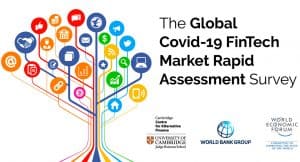
The 36H Group launched in January of 2020 as the unified voice for lending platforms that accept retail investments. 36H replaced the UK Peer to Peer Finance Association, a group that had long been a prominent advocate for the emerging P2P lending sector – a segment of Fintech that was created in the UK.
The group gets its name from platforms that are fully authorized by the Financial Conduct Authority (FCA) under Article 36H of the Financial Services and Markets Act 2000. Membership of the Group is open to all lending platforms that are authorized and regulated by the FCA under these rules.
36H is “powered by” Innovate Finance, an independent industry organization that advocates on behalf of the global Fintech community in the UK. Innovate Finance’s mission is to “accelerate the UK’s leading role in the financial services sector by directly supporting the next generation of technology-led innovators,” and online lending is a key part of this mission.
36H Group works closely with regulators, policymakers, and other stakeholders while promoting the benefits of online lending including bringing choice, competition, and transparency to the lending and investment markets.
In May of 2020, Mike Carter was appointed to lead 36H. Crowdfund Insider recently discussed Fintech and online lending during the COVID-19 pandemic with Carter. Our conversation is below.
36H Group officially launched in January 2020. Realizing it has been a challenging year, how engaged has the group been with P2P platforms? What about regulators and elected representatives?
Mike Carter: The 36H Group was established by its founder members, Crowd Property, Funding Circle, Lending Works, RateSetter and Zopa who were followed shortly after by Assetz Capital. As such the impetus for engagement came from the members from the start and the Group has been very engaged with members in its first 6 months.
We’ve also commenced a new dialogue with the Financial Conduct Authority (FCA), and 36H Members are fully plugged into Innovate Finance’s dialogue with Government departments such as HM Treasury and with elected representatives. 36H Members have been front and centre of Innovate Finance’s recent successful efforts to win acceptance for P2P platforms to be accredited by the British Business Bank to lend in the Government’s Covid-19 SME support programmes (CBILS and BBLS), with Assetz Capital and Funding Circle already approved. Other examples include 36H Group Member Crowd Property presented to the All-Party Parliamentary Group on Fintech alongside Charlotte Crosswell, CEO of Innovate Finance.
In general, how are online lending platforms performing in a world impacted by the COVID-19 pandemic?
Mike Carter: The economy is facing some serious challenges as a result of the COVID-19 pandemic, and Fintech is no exception.
As you would expect, most online lenders tightened their lending criteria on the way into lock-down given the uncertainty ahead.
Application volumes fell initially, but more recently, as lockdown has eased, many lenders have seen returning demand, and in fact Funding Circle stated recently that June 2020 was a record lending month for their platform.
Operationally the platforms switched very easily to remote working given the lean nature of their operating structures
What are your thoughts on the various UK government support schemes? As you mentioned, some P2P platforms are providing access to funding under these programs. Is it enough?
Mike Carter: We have worked tirelessly with industry to highlight to government and regulators the unique capability of non-bank lenders to distribute loans more efficiently to small businesses, using technology to assess, match and distribute applications at high volumes and speeds. Demonstrating the ability of alternative lenders to process loans quickly and in volume, 36H Member Funding Circle announced on 8th July that since it started lending CBILS loans (Government support programme) in May 2020 it has approved £460 million of loans to SMEs, equivalent to 16% of the entire new CBILS loans during that period.
This has been recognised at the highest levels and many more Fintech lenders are now accredited and delivering COVID-19 emergency funding to those who need it most. However, once accredited, NBLs then have to secure wholesale funding in order to provide CBILs and BBLs loans, and this can result in challenges for the sector.
Other countries have taken a different approach and granted access to central bank funds to expedite loans through Fintech lenders.
As lockdown eases and we embark on a journey towards economic recovery, we are urging policymakers to recognise the pivotal role Fintech plays in providing the country’s small businesses with the vital financial lifeline they need to get back on their feet.
There has been a good amount of discussion on digital transformation and the fact that COVID is acting as an accelerant. How is this impacting traditional finance?
Mike Carter: Covid-19 has caused further sharp declines in cash and ATM transactions and physical visits to bank branches. These have been in decline for many years but this crisis highlights the need for traditional financial services businesses to be able to service their customers with digital products independent of their traditional channels.
We are at a pivotal moment and we should leverage the innovation in financial services and use it to enable economic recovery. However, it is also important to remember that there remains a part of society that does not use the banking system or does not have access to digital.
As the crisis unfolds, it is important that the financial services sector caters for these consumers too so that this rapid increase in digital financial services doesn’t exclude them.
 What about Fintechs in general as some sectors appear to be doing better than others?
What about Fintechs in general as some sectors appear to be doing better than others?
Mike Carter: The most obvious beneficiary of the Covid-19 crisis is in Payments, where contactless and app payments have become the norm in most retail businesses, and cash payments have declined. This trend was already underway but the Covid-19 crisis has accelerated it. Even the Bank of England is using payment data (30 June/Andy Haldane) to illustrate how the consumer economy is bouncing back from lock-down, and so the Digital Payments sector is also assisting Government decision-making.
Other sectors benefiting from the crisis are Regtech, spurred by regulated businesses having to work remotely, and Digital Identity Fintechs due to the increase in online transactions and an increase in attempted online fraud and identity theft.
What about the regulatory environment? Are policymakers up to speed on this transition?
Mike Carter: Policymakers are watching closely to see how Fintech sectors behave and respond in a crisis given that many of these businesses didn’t exist at the time of the 2008 crisis and this is their first major test.
Areas of focus are likely to be the Payments sector given the significant increase in and dependence on digital payments in the crisis. Now may be the time to review regulations to make sure they are fit for future needs, ensuring that innovation continues to develop while always maintaining consumer protection.
The implementation of additional rules in the UK P2P sector in 2019 is an example of the FCA continuously enhancing the regulatory environment for Fintech in response to market developments. Additionally, the FCA announced its Digital Sandbox in April with a specific focus on supporting innovative firms looking to tackle Covid-19 related challenges facing firms and consumers, showing that the FCA is looking to the Fintech sector to help find solutions during the crisis
Over the long run, who wins? Consumers? Big tech?
Mike Carter: Over the long run, we expect Consumers to benefit from the innovation in the financial services sector, driven in large part by tech and big data.
An example of this is Open Banking, where lenders can access granular and current financial data on a Consumer allowing them to provide the right credit product in a matter of seconds so as to achieve the best outcome for the customer.
Ultimately the drive is towards allowing Consumers easy access to their data; faster and cheaper transactions, and greater control over their decisions, leading to significant improvements in financial planning and outcomes for the Consumer.
 This interview is part of an ongoing series looking at the evolution of the Fintech industry with particular reference to the changing landscape in light of Covid-19.
This interview is part of an ongoing series looking at the evolution of the Fintech industry with particular reference to the changing landscape in light of Covid-19.
The series has been initiated in support of The Global Covid-19 Fintech Rapid Assessment Survey being carried out by the Cambridge Centre for Alternative Finance at the University of Cambridge Judge Business School, in partnership with the World Bank and the World Economic Forum. The empirical data collected will be used to understand the pandemic’s impact on the FinTech markets, how the global Fintech industry has responded and some of the immediate regulatory and policy implications. Crowdfund Insider is proud to be a research partner for the survey.

